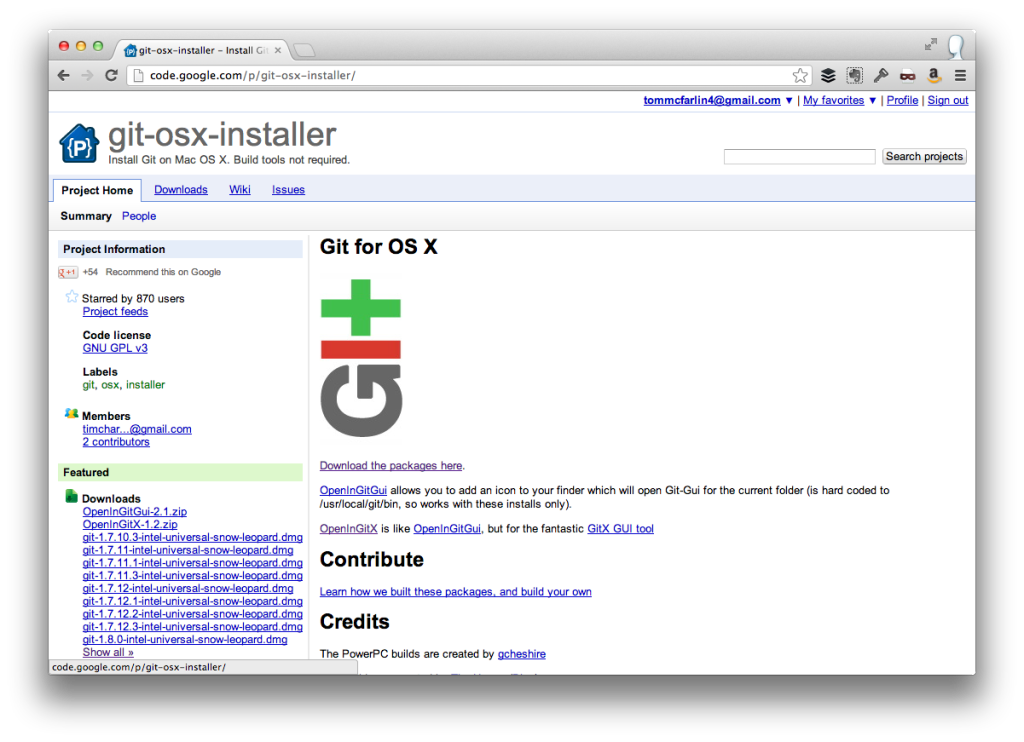- Installing
We are now ready to start working with git. Please revisit Part 2 of this series and get comfortable working with git from the command line. In the next post we are going to start working with the git graphical user interface, work more with git repositories and push our first project to the GitHub servers.
Popular Alternatives to Git Bash for Windows, Mac, Linux, Electron / Atom Shell, Software as a Service (SaaS) and more. Explore 8 apps like Git Bash, all suggested and ranked by the AlternativeTo user community. Our CI Builds are provided by Microsoft Azure Pipelines, Flathub, and Canonical. Barrier is software that mimics the functionality of a KVM switch, which historically would allow you to use a single keyboard and mouse to control multiple computers by physically turning a dial on the box to switch the machine you're controlling at any given moment.
GitLab Runner can be installed and updated on macOS.

Installing
There are two methods for installing GitLab Runner on macOS:
- Manual installation. This method is officially supported and recommended by GitLab.
- Homebrew installation. Install with Homebrew as an alternative to manual installation.
Manual installation (official)
Download the binary for your system:
You can download a binary for every available version as described inBleeding Edge - download any other tagged release.
Give it permissions to execute:
The rest of the commands should execute as the user who will run the Runner.
- Note:When you build iOS or macOS applications on macOS, use the shell executor.The build and tests run as the identity of the logged-in user, directly on the build host.It does not run in a container. This is less secure than using container executors. For more information, see thesecurity implications documentationfor additional detail on what to keep in mind in this scenario.
Install the Runner as a service and start it:
Runner is installed and will be run after a system reboot.
Homebrew installation (alternative)
A Homebrew formula is available to install GitLab.
To install GitLab Runner using Homebrew:
Install the GitLab Runner.
Install the Runner as a service and start it.
Runner is installed and running.
Limitations on macOS
Currently, the only proven way for it to work in macOS is by running the service in user-mode.
Since the service will be running only when the user is logged in, you shouldenable auto-login on your macOS machine.
Git Client Mac Os
The service will be launched as a LaunchAgent. By using LaunchAgents,the builds will be able to perform UI interactions, making it possible to run andtest in the iOS simulator.
It’s worth noting that macOS also has LaunchDaemons, services runningcompletely in background. LaunchDaemons are run on system startup, but theydon’t have the same access to UI interactions as LaunchAgents. You can try torun the Runner’s service as a LaunchDaemon, but this mode of operation is notcurrently supported.
You can verify that the Runner created the service configuration file afterexecuting the install command, by checking the~/Library/LaunchAgents/gitlab-runner.plist file.
If Homebrew was used to install git, it may have added a /usr/local/etc/gitconfig filecontaining:
This tells Git to cache user credentials in the keychain, which may not be what you wantand can cause fetches to hang. You can remove the line from the system gitconfigwith:
Alternatively, you can just disable credential.helper for the GitLab user:
You can check the status of the credential.helper with:
Manual update
Stop the service:
Download the binary to replace the Runner’s executable:
You can download a binary for every available version as described inBleeding Edge - download any other tagged release.
Give it permissions to execute:
Start the service:
Make sure that you read the FAQ section which describessome of the most common problems with GitLab Runner.
Git App Mac Os 10.10
Upgrade the service file
In order to upgrade the LaunchAgent configuration, you need to uninstall andinstall the service:
Upgrade Git On Mac
Using codesign with the GitLab Runner Service
If you installed gitlab-runner on macOS with homebrew and your build callscodesign, you may need to set <key>SessionCreate</key><true/> to haveaccess to the user keychains. In the following example we run the builds as the gitlabuser and want access to the signing certificates installed by that user for codesigning:
Help & feedback
Docs
Edit this page to fix an error or add an improvement in a merge requestCreate an issue to suggest an improvement to this doc
Show and post comments to review and give feedback on this doc
Product
Create an issue if there's something you don't like about this featurePropose functionality by submitting a feature request
Join beta testing to help shape new features
Feature availability and product trials
View pricing to see all GitLab tiers and features, or to upgradeGitLab Gold Free-trial to try all features in GitLab.com
GitLab Ultimate Free-trial to try all features in GitLab self-managed
Get Help
If you didn't find what you were looking for, search the docs.
If you want help with something specific, and could use community support, post on the GitLab forum.
For problems setting up or using this feature (depending on your GitLab subscription).